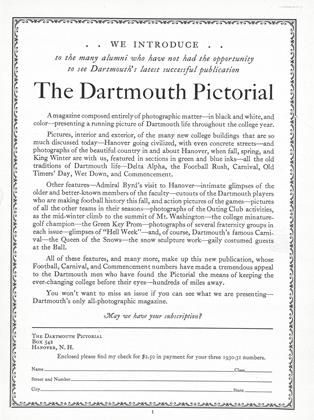KORGUEFF will meet to-morrow all soldiers and sailors who desire to learn how to play the violin. He is a master violinist. He was concert master of the Czar's Imperial Orchestra and professor in the great St. Petersburg Conservatory. But each of you soldiers and sailors can easily learn to master this instrument. One year of study under Korgueff and you will play better than the master himself!"
Having shouted this at the top of his voice to a great throng of halfstarved Bolsheviks the government official descended from the platform and spoke to SergeKorgueff, dignified artist whose fame was known to all Russia, whose playing had charmed thousands, whose teaching had started many young musicians on the path to concert stage glories. Silently, the throng of uniformed men filed from the hall. They were hungry, but to many came the comforting thought that indeed they might easily become great musicians. They did not know that high officials of the government painted such pleasant pictures in order to ward off open revolt among their Bolsheviks.
The following day at the appointed time and place Korgueff found nearly a hundred ragged soldiers and sailors, gathered to learn the violin from the maestro. Many of them unable to read or write, the professor confronted a difficult task. He well knew that to disregard high commands meant exile. "So, you men must learn the violin. It is not difficult. Place your left arm in this position. And your right arm raised, as if holding a bow, like this." With his students lined up before him Korgueff assumed a rigid pose. Each of the men followed his example. "Now you must hold your positions. There must be no relaxing. I shall tell you when to lower your arms." Two hours later Korgueff told his thoroughly exhausted "students" that they might then relax, to come again the next day, and that the second lesson would be somewhat more difficult. No wonder that only six returned for more punishment!
As visiting lecturer in music at Dartmouth since 1925 Professor Korgueff is one of the more distinguished residents of the town. With his wife, Marie Petroff, he is often seen driving in a sporty Chrysler roadster. Together they regularly attend Hanover functions varying from football games to popular lectures and Webster Hall concerts. He is respected as a musician and admired as a vigorous gentleman of courtly manner and bearing. Conversation as an art finds an interpreter in Korgueff whose genial nature and keen intellect quickly respond to friendly advances, even though the English language is not always easily adapted to thoughts framed in the Russian tongue.
Although he attained such distinction as to hold a professorship in the St. Petersburg Conservatory for 24 years, as to be concert master of the Czar's Imperial Orchestra for 10 years, and as a member of Leopold Auer's world renowned Quartet for 15 years he takes most pride in the position of General Supervisor of Peasant Handwork, which he held under Stolypin's government. Musical instruments, violin strings and musical accessories had always been imported from Germany. With the authority of the Bolshevist leaders Korgueff started the manufacture of musical instruments and accessories as a peasant home industry. Today he can point to Russia's self-sufficient production of these materials as one of his greatest contributions to the progress of his country.
Dartmouth's department of Music, under the leadership of Maurice F. Longhurst, occupies a prominent position in the life of the College. Academically it is strongly manned with Prof. Leonard B. McWhood, Prof. Homer P. Whitford and Donald E. Cobleigh associated with Professor Longhurst in giving the popular courses in music appreciation, which the department offers. But of equal importance and popularity is the yearly program of public musical events sponsored by the department. Many hours of practice under the direction of Dartmouth's music teachers account for the success of the glee club, the band, the instrumental club, the symphony orchestra, the community chorus.
Professor Korgueff plays his part well in this active department of the College. As visiting lecturer in Music at Dartmouth, as professor of the Institute of Musical Art on the Juillard Foundation in New York, as teacher of the violin in Hanover, Boston and New York, and as a resident authority on music he is a valued Hanoverian.
Colorful careers and distinctive accomplishment are combined in the lives of many who are associated in some way with Dartmouth, either through alumni relationship or membership on the faculty. For the information of its readers and, it is hoped, for the inspirationof many, THEMAGAZINE presents this article, one of a series of similar stories.—Ed.
 View Full Issue
View Full Issue
More From This Issue
-
 Article
ArticleThe Class of 1934
November 1930 By Charles R. Lingley -
 Class Notes
Class NotesCLASS OF 1930
November 1930 By Albert I. Dickerson -
 Lettter from the Editor
Lettter from the EditorEditorial Comment
November 1930 -
 Class Notes
Class NotesCLASS OF 1913
November 1930 By Warde Wilkins -
 Class Notes
Class NotesCLASS OF 1920
November 1930 By Allan M. Cate -
 Article
ArticleA Course in the Department of Biography
November 1930 By Harold E. B. Speight







